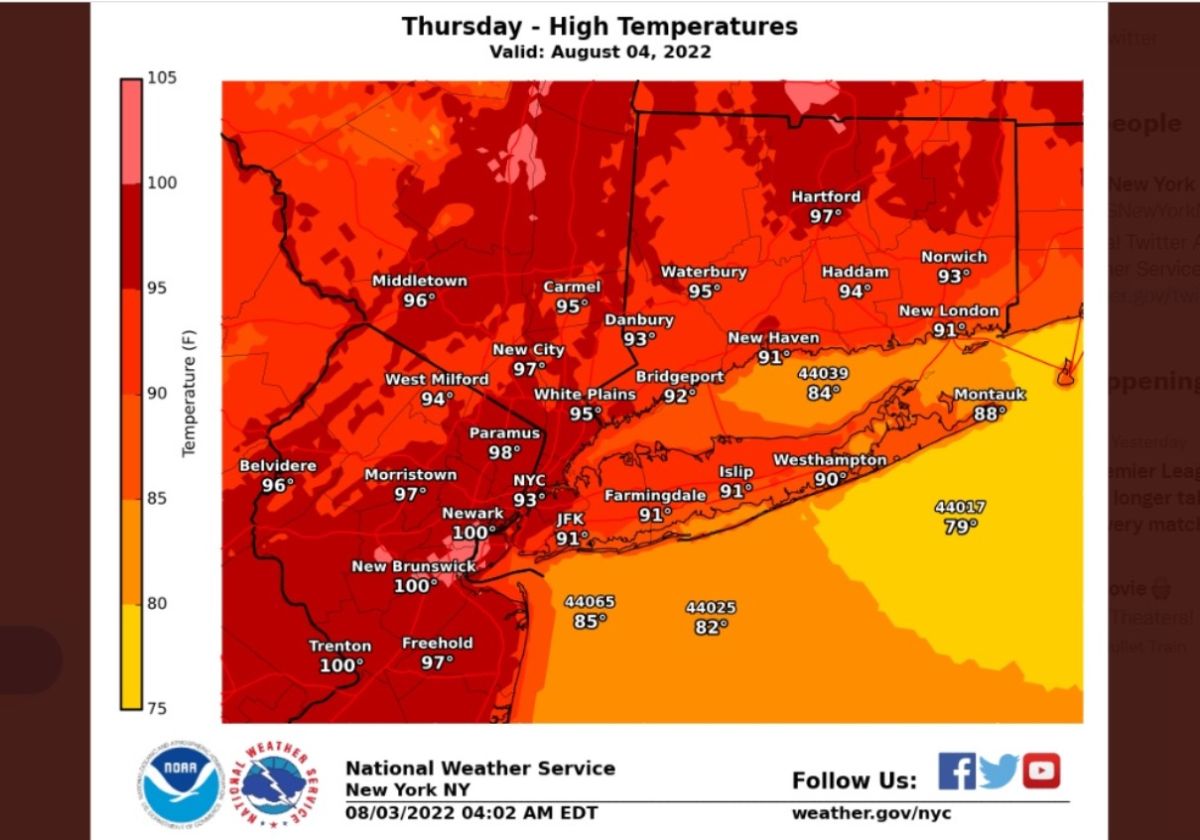Awaiting scorching temperatures, the National Weather Service (NWS) yesterday issued heat advisories from 11 am Thursday through 8 pm tomorrow Friday in most of the tri-state area, with the exception of the Jersey Shore and Hudson Valley areas.
Summer heat and humidity returned to the tri-state area with a vengeance. In Central Park, the midpoint of weather in New York City, expect temperatures near or above 90 degrees F (32C), although the heat index level will who sits at 311F (38C) or more, predicted NBC News.
Saturday on thermometer would drop to 85F (15C), and on Sunday and Monday again up to 90F (32C).
The NYC Department of Emergency Management (OEM) reminds that the combination of “heat and humidity can be dangerous, especially for people with health problems. health” and “cooling center” with air conditioning and swimming pools with free access have been activated. Four people have died this summer in NYC due to high temperatures.
Weather updates can be found here and on the National Weather Service (NWS-NY) website. More details here about the forecast in each county of New York and Jersey.
Tips to prevent and treat hyperthermia (high body temperature):
- Drink enough liquid during the day, both water and vegetable and fruit juices. Avoid coffee and alcohol.
- If your house does not have air conditioning or fans, keep the curtains and windows closed during the day and open at night.
- Avoid the sun. Prolonged exposure always has negative consequences.
- Do not exercise outdoors and avoid overly crowded places during peak high temperature hours. It is considered that around 3: 00 pm is the time hotter in the day.
- Limit the use of large appliances, such as washers, dryers , dishwasher and microwave, between 2 and 10 pm
- Use only one large appliance at a time at home.
- Limit the use of air conditioning whenever possible. If you have multiple computers, turn on only one.
- Use fans to help circulate air. If you open windows or balconies, do not leave children unattended. Carefully check window guards periodically. Covers or screens are not safe substitutes.
- Turn off the air conditioning when you are not home and use a timer to start cooling half an hour before you arrive. Set the highest temperature that is comfortable for you.
- Try to wear cotton clothes or natural, fresh and light fabrics, and avoid synthetic fibers and dark colors.
Additionally, to avoid blackouts and fires, Con Ed recommends:
